How to make your commercial kitchen more sustainable
Sustainability is the future for many areas of your business. Increased sustainability in commercial kitchens also brings with it lots of benefits too.
Some simple switches made by you will support the environment, potentially increase your customer loyalty base, reduce energy costs, and provide a worthwhile investment into your kitchen’s future.
Another great topic that we believe can save you a lot of money and stress is our blog on what mistakes you should avoid when buying a commercial kitchen.
Ways to make your commercial kitchen more sustainable
We’ve pulled together the best ways to increase sustainability in commercial kitchens.
1. Upgrade equipment to be eco-friendly
Start by looking at your energy suppliers and the equipment you use, as these can have big impacts on the environment. Here at Inox Equip, we care about the impact our equipment has on the environment.
We therefore use the latest technology to:
- Maximise efficiency
- Reduce the amount of energy used or wasted
- Move towards an ‘all electric’ approach
- Minimise life-cycle costs
- Reduce the impact on the environment
We Also
- Look for the next best technology in kitchens
- Use first-class technology that optimises sustainability
- Find ways to recycle or reuse old equipment
- Develop ways equipment can track energy usage, stock, wastage etc.
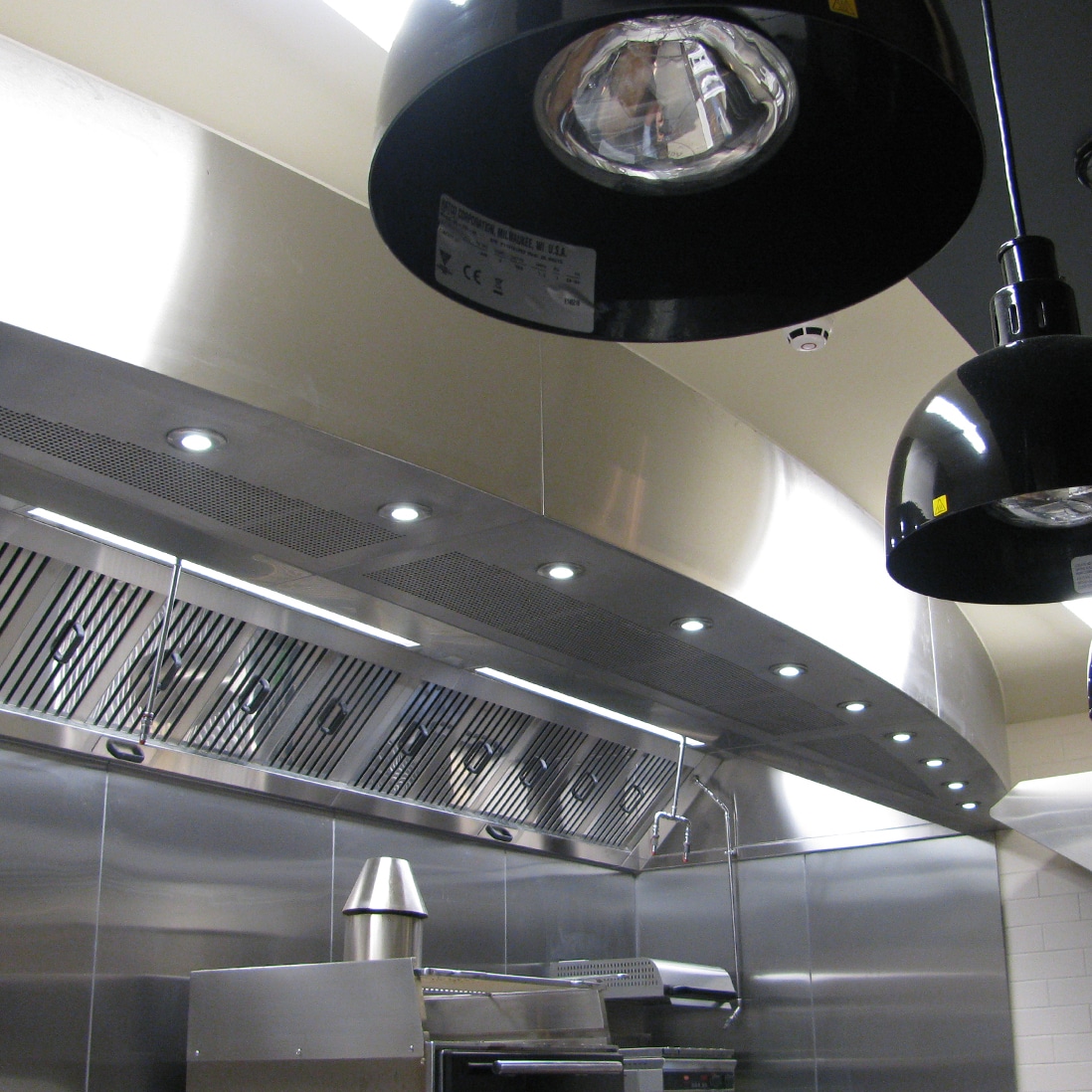
2. Cut down energy usage
Like you would at home, take a moment to walk around your premises and consider where you’re losing energy (and therefore money). Some suggestions could include:
- Looking at shift patterns to see when you need lighting and heating switched on
- Use automatic or motion sensor lighting
- Putting up signs that encourage staff to consider and reduce their energy usage
- Research eco-friendly energy providers
- Implement an energy management system that monitors usage and identifies wastage.
3. Encourage people to watch their water use
It might not be obvious but misuse of water can have a big impact on the environment as well as your costs. Useable water goes through multiple treatment processes that contribute to carbon emissions, so you can reduce your impact by:
- Making your team aware of the impact
- Installing motion sensor taps
- Ensuring taps are turned off correctly
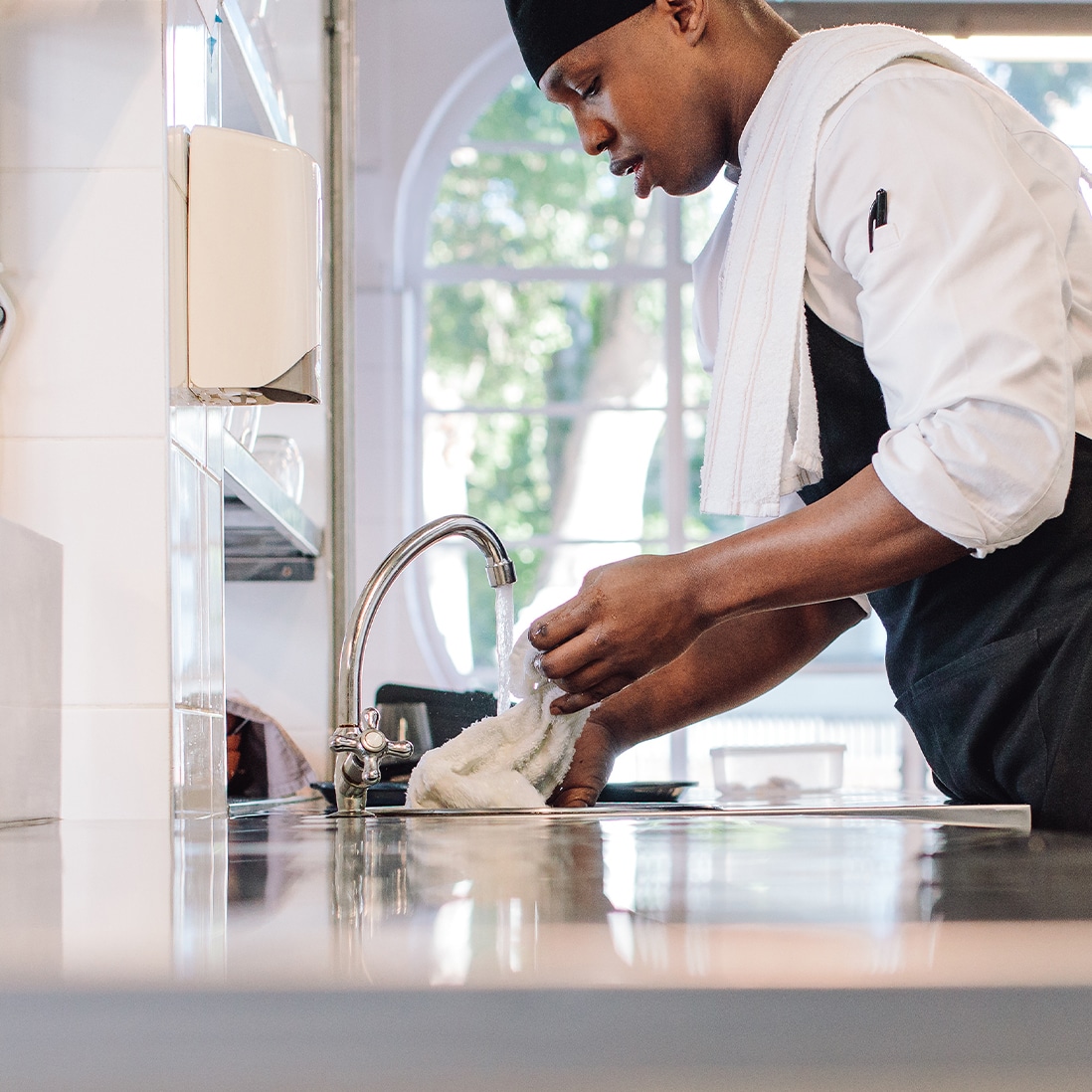
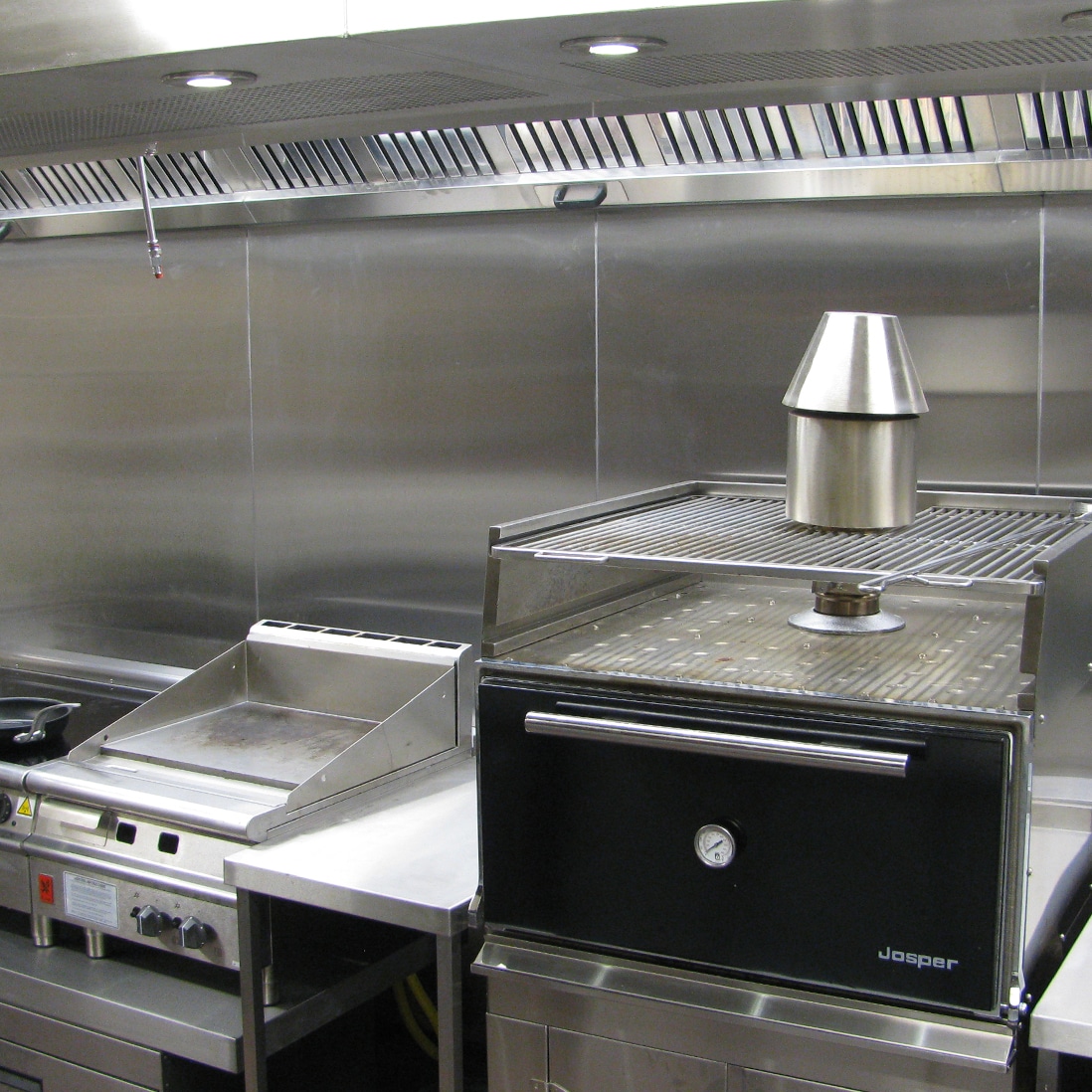
4. Properly maintaining your kitchen equipment
Kitchen appliances are costly pieces of equipment, so it’s important to look after them and ensure they’re not only functioning to their full potential but that you get the most out of them. Incorporating regular cleaning, servicing and maintenance will minimise heat and energy waste, ultimately saving you money, and reducing the impact on the environment.
5. Reuse instead of re-buying
Sustainability in commercial kitchens starts with you. Look at what you already have in your kitchen and think about what you can reuse or repurpose, rather than throwing something away and re-buying. Some ideas could be:
- Stop buying plastic or Styrofoam packaging and cutlery
- Opt for storage and cutlery options made from recycled materials
- Use washable dishware that can be reused
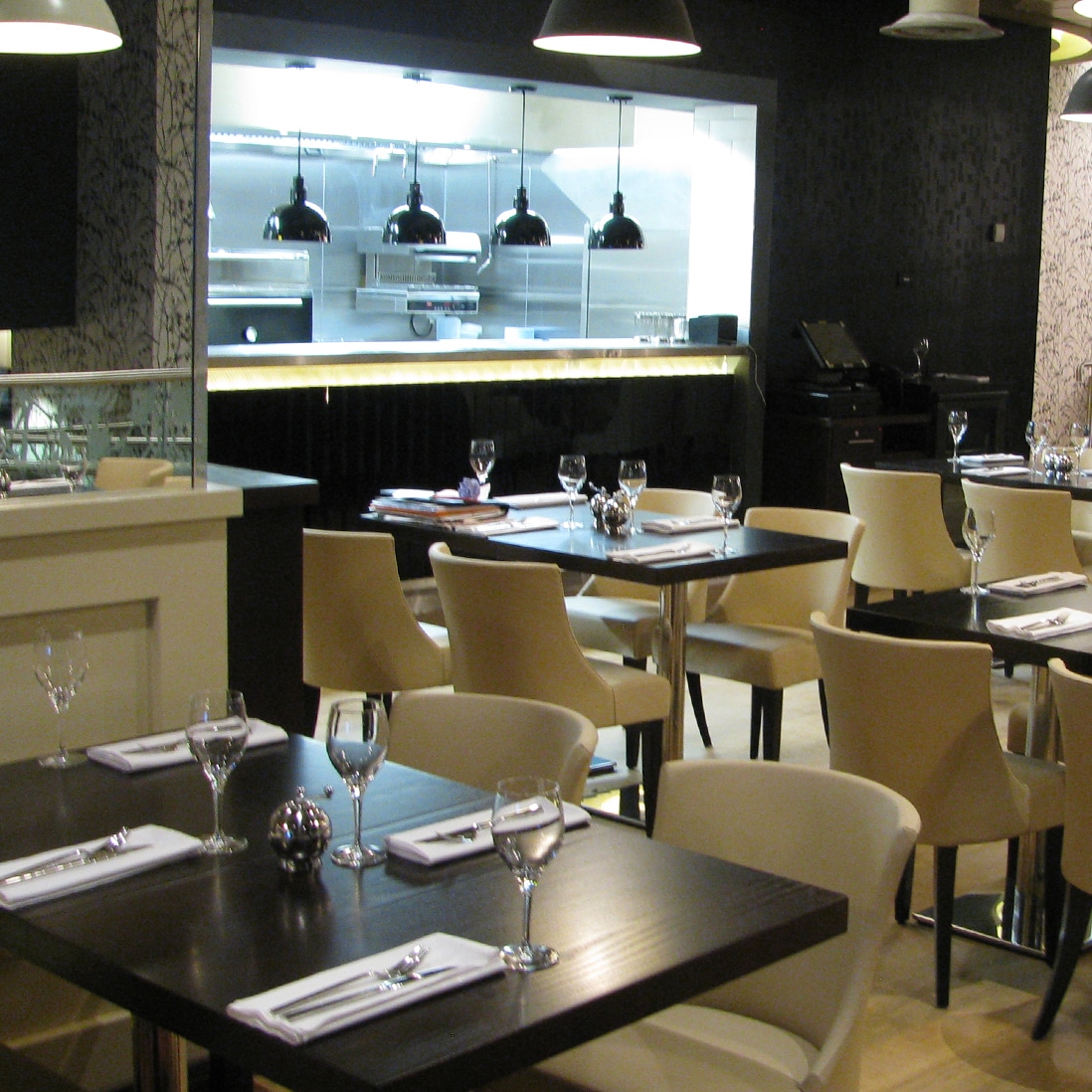
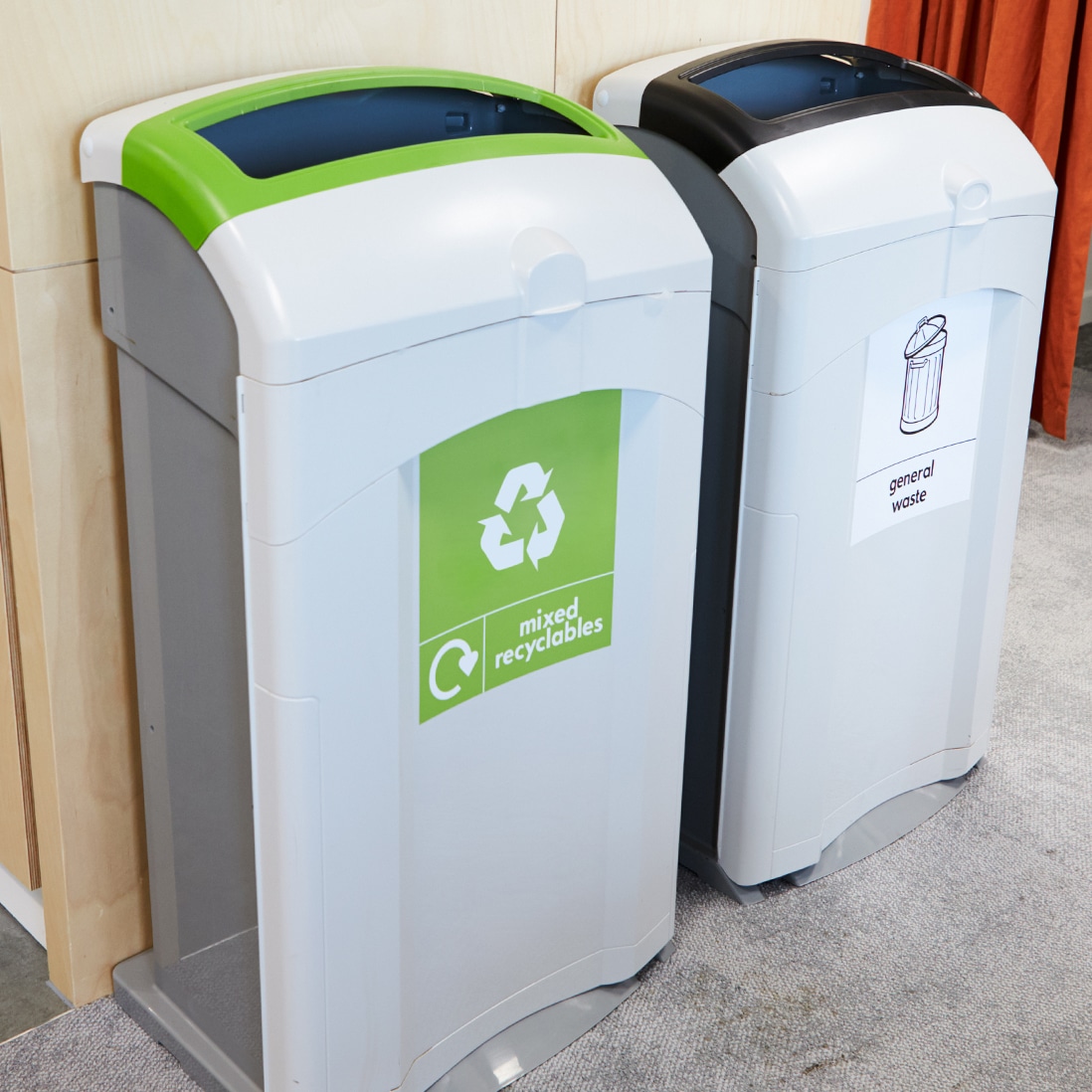
6. Recycle
This is a quick win for your colleagues and kitchen. Help the environment by:
- Investing in recycling bins
- Use automatic or motion sensor lighting
- Providing adequate signage so your team know where and what to recycle
- Checking with your local recycling centre to see what they accept.
7. Start small
Just by doing a little, you’re doing a lot! And remember you can’t do everything at once, so start by breaking it down:
- Create a plan of what you want to implement or change
- List quick swaps that you can action now, such as washable, linen napkins or menus printed on recycled paper
- Make a roadmap for future changes
- Keep an eye out – the market is constantly developing sustainable alternatives which you could use.
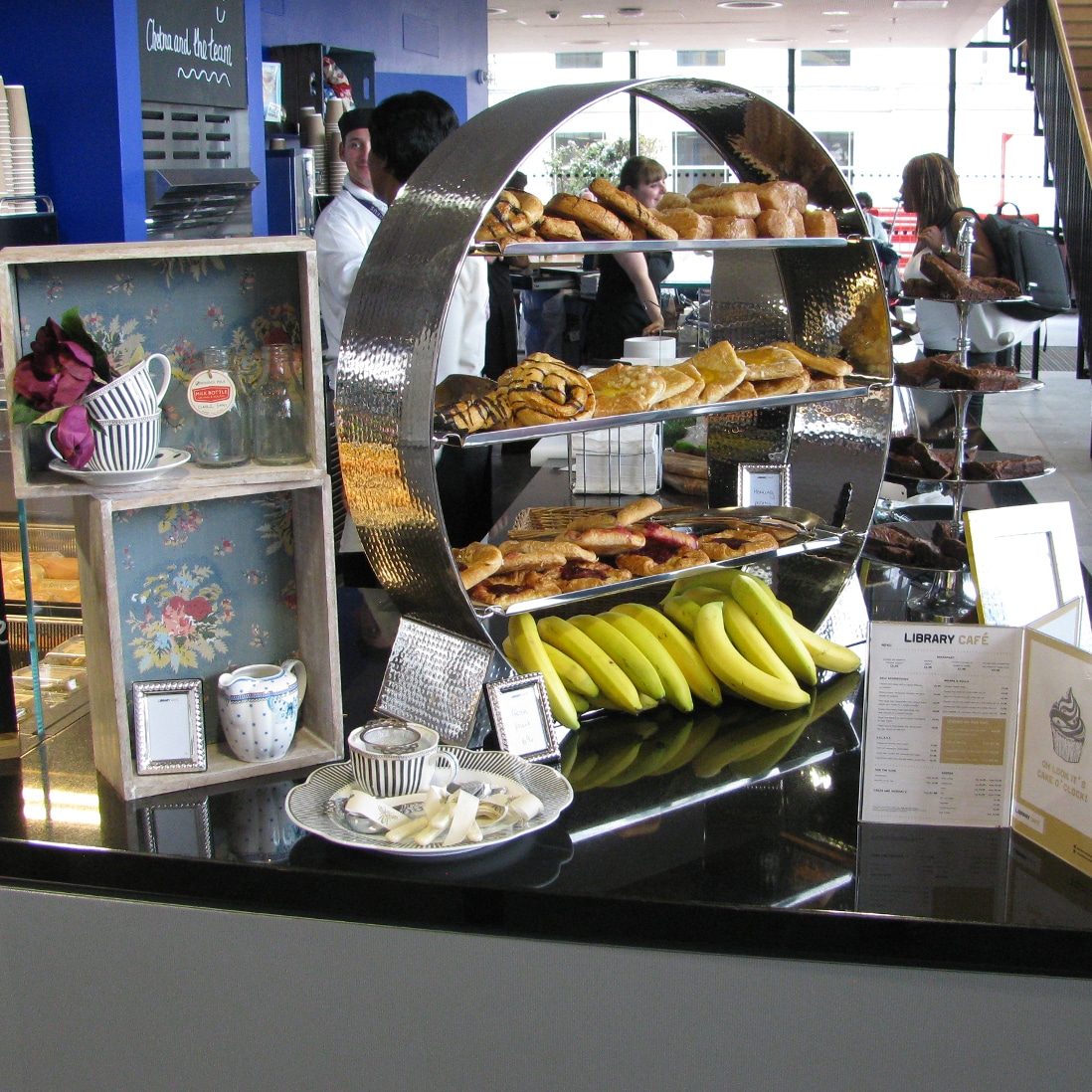
Make your commercial kitchen’s future, sustainable
The fact you’re looking at ways to make your commercial kitchen more sustainable is a great start, and as you can see, there are lots you can do. Begin with those quick changes and look into ways your kitchen can become more economical in the future. If you need any advice or support, read our sustainability page or get in touch.
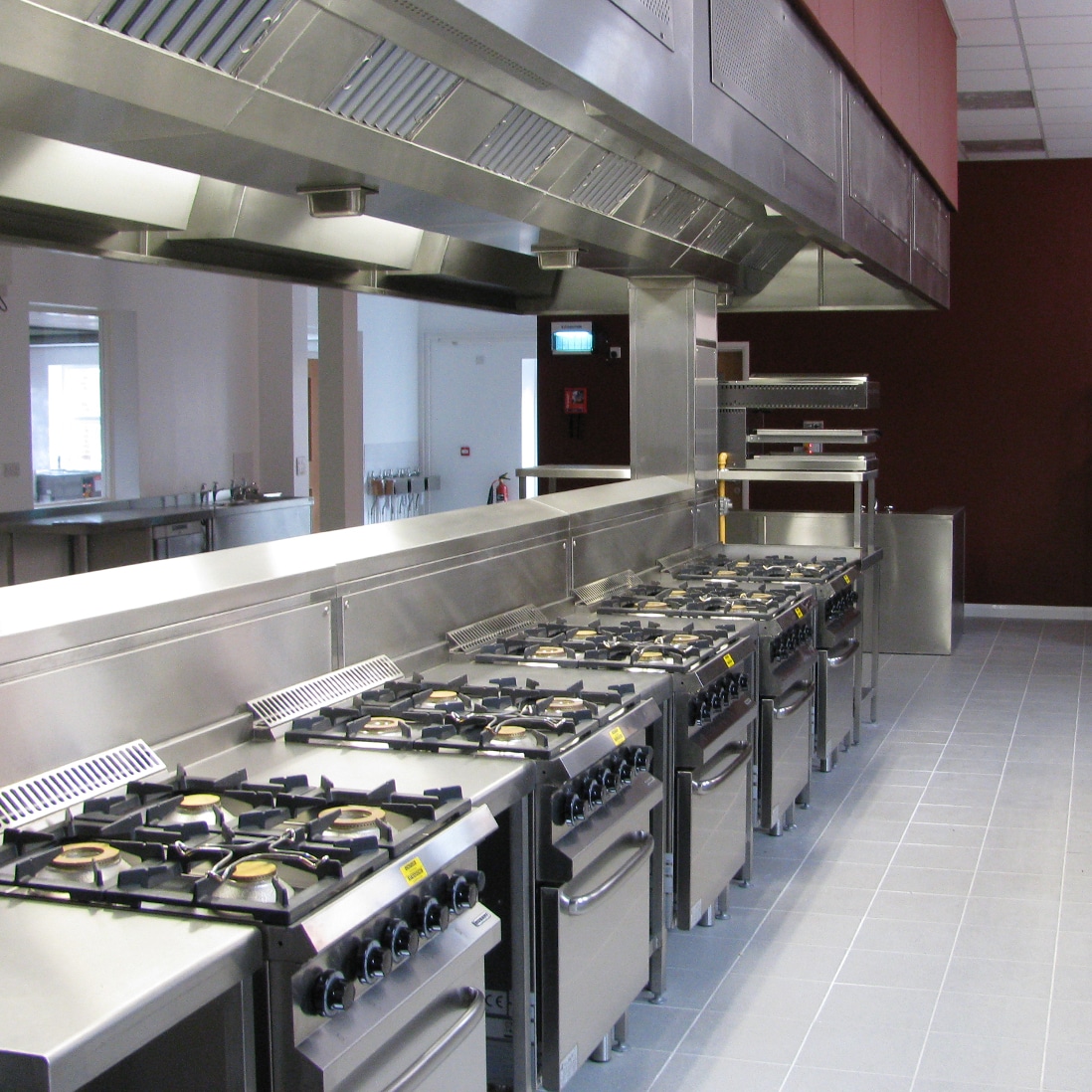

Share This: